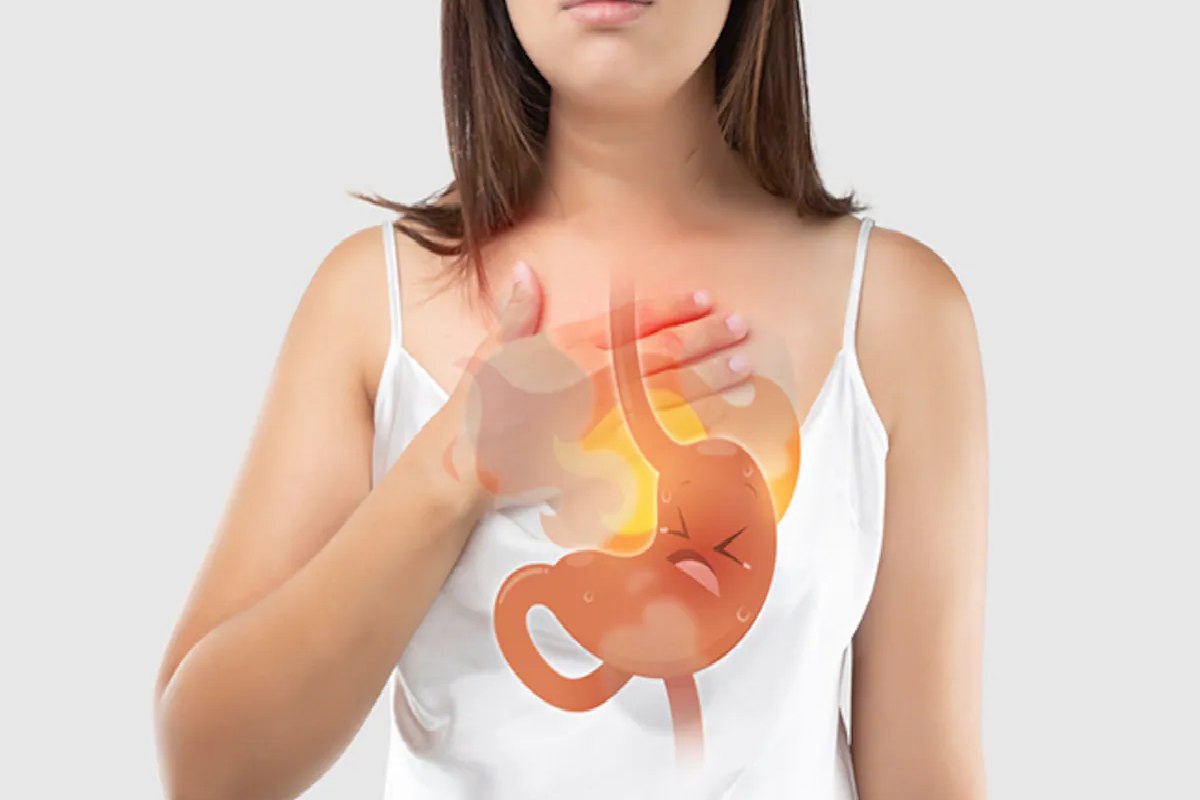Acid reflux, gastric pain or even Heartburn, more than half of French people over 50 are affected by Heartburn daily. To soothe these digestive symptoms, it is advisable to review one’s diet, which is often too rich, and take anti-reflux medication. Explanations.
Table of Contents
What is Heartburn?
Heartburn results in a painful sensation in the stomach region that sometimes radiates behind the sternum or even at the throat level. They may be accompanied by acid reflux from the stomach to the oesophagus ( gastroesophageal reflux ), causing an unpleasant taste (bitterness or acidity).
“The pain is sharper when lying down and when the patient bends down or leans forward”, specifies gastroenterologist.
Pain last from a few minutes to a few hours. Heartburn is mild and transient. It generally occurs after eating a meal or at night (when the patient is lying down), in case of stress hunger (as part of fasting).
During digestion, the stomach uses gastric juices to reduce food consistency. When the subject has had too large a meal and has not chewed the food enough, an excess of acidity inflames the stomach walls and sometimes the oesophagus, causing a burn.
“But when these signs are prolonged and become regular, it is best to consult a doctor. According to the specialist, if he identifies gastroesophageal reflux, he can then manage treatment to the patient and recommend lifestyle and dietary measures”.
What are the Complications of Heartburn?
In case of recurring Heartburn, we speak of gastroesophageal reflux disease or GERD. In the long term and the absence of treatment, GERD can give rise to various complications:
Esophagitis: inflammation of the oesophagus, which an ulcer may complicate;
Peptic Stenosis: Narrowing of the lower oesophagus following acid attacks;
The Endobrachyesophagus (or Barrett’s mucosa): colonization of the oesophagus by epithelial cells (intestinal metaplasia), which exposes to the risk of cancer of the oesophagus.
What Causes Heartburn?
Heartburn is usually mild and related to an overproduction of stomach juices. A heavy meal can cause it, the consumption of fatty foods or specific foods (such as coffee, spices, etc.), stress, hunger, etc.
Positions (lying down or leaning forward) and movement (especially after a meal) can cause movement-related acid reflux.
What are the risk factors for Heartburn?
Certain factors expose you to the onset or aggravation of Heartburn:
- Hearty meals
- Fatty foods or specific foods ( coffee, chocolate, spices, vinegar, etc.)
- Stress
- Hunger, fasting
- Physical activity (especially after a meal)
- Leaning forward or lying down
- I was taking anti-inflammatories.
Heartburn is likely to become chronic in the presence of the following factors:
- A hiatal hernia
- Overweight and, more particularly, abdominal obesity
- Pregnancy
You are taking certain medications, such as hormones (progesterone) and specific molecules used in cardiovascular diseases ( nitro derivatives, calcium channel blockers ).
Tobacco and alcohol are often singled out among the risk factors for chronic Heartburn, but “solid evidence is lacking to support a potentially deleterious role”, underlines the SNFGE.
What are the symptoms of Heartburn?
Heartburn can manifest as:
A burning sensation that starts from the epigastric hollow and goes up towards the chest or Heartburn. It is exacerbated after meals and when lying down or leaning forward;
acid regurgitation (return of liquids or food in the mouth), leaving a bitter taste.
It is recommended to consult a doctor if these manifestations are prolonged or become recurrent. Some symptoms could then remain associated with these stomach aches:
- dyspepsia ( feeling of lousy digestion or heaviness after a typical meal);
- belching, hiccups; _
- frequent coughing, especially at night;
- a hoarse voice ;
- chronic pulmonary or ENT infections (otitis, laryngitis, pharyngitis, etc.);
- asthma attacks ;
- chest pain ;
- dental erosion (linked to acidity).
Consult a doctor quickly if one of the following signs added to some of the previous ones:
- difficulty swallowing (or dysphagia);
- bleeding (in vomiting, for example);
- signs of anaemia;
- weight loss.


